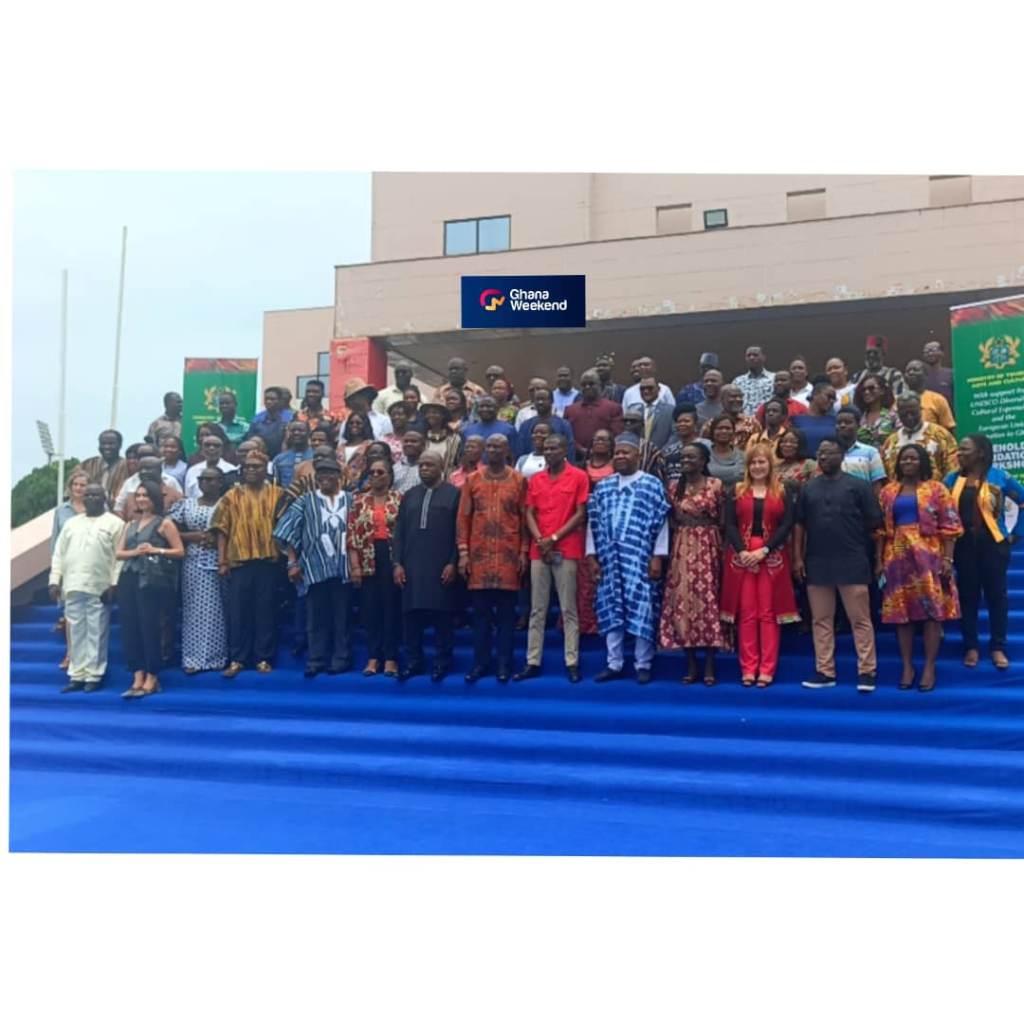Ghana is set to revitalize its cultural landscape through a significant update to its National Cultural Policy, which has remained unchanged since 2004. The current policy has become increasingly outdated due to rapid technological advancements and shifting societal needs.
With financial support from UNESCO and the European Union, the Ministry of Tourism, Arts, and Culture is leading the initiative to revise the policy, ensuring it reflects contemporary development trends and supports Ghana’s rich cultural heritage. The nation’s diverse ethnic groups, languages, and artistic traditions are central to its identity.

To facilitate comprehensive stakeholder input, the Ministry hosted a validation workshop on Tuesday, August 13, 2024, at the Accra International Conference Centre. The workshop brought together key figures from the creative industries, civil society, academia, and traditional authorities to review and provide feedback on the draft policy.
Attendees included Mr. H.E. Edward Mukala, UNESCO Country Representative; Ms. Margo Pitura, European Union Representative; as well as representatives from the embassies of Spain, Mexico, Saudi Arabia, and the United Arab Emirates. Deputy Minister for Creative Arts, Mark Okraku Mantey, also participated in the event.
The revised policy aims to achieve several key objectives:
- Prioritize the protection, conservation, and promotion of Ghana’s tangible and intangible cultural heritage.
- Encourage the growth and sustainability of Ghana’s creative industries, including music, film, fashion, visual arts, crafts, and performing arts.
- Emphasize the integration of cultural education into both formal and informal learning systems.
- Facilitate cultural exchange programs, collaborations, and partnerships with other nations.
- Enhance the promotion of indigenous technology and traditional medicine.
- Incorporate cultural inputs into the governance system.
Representatives from UNESCO and the European Union voiced their support for Ghana’s commitment to preserving and promoting its cultural heritage. They underscored the importance of culture in fostering sustainable development and economic growth.
The updated National Cultural Policy is anticipated to be unveiled later this year.